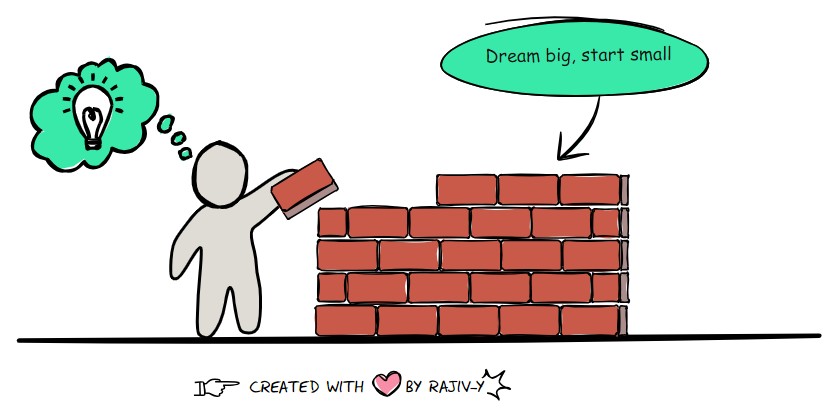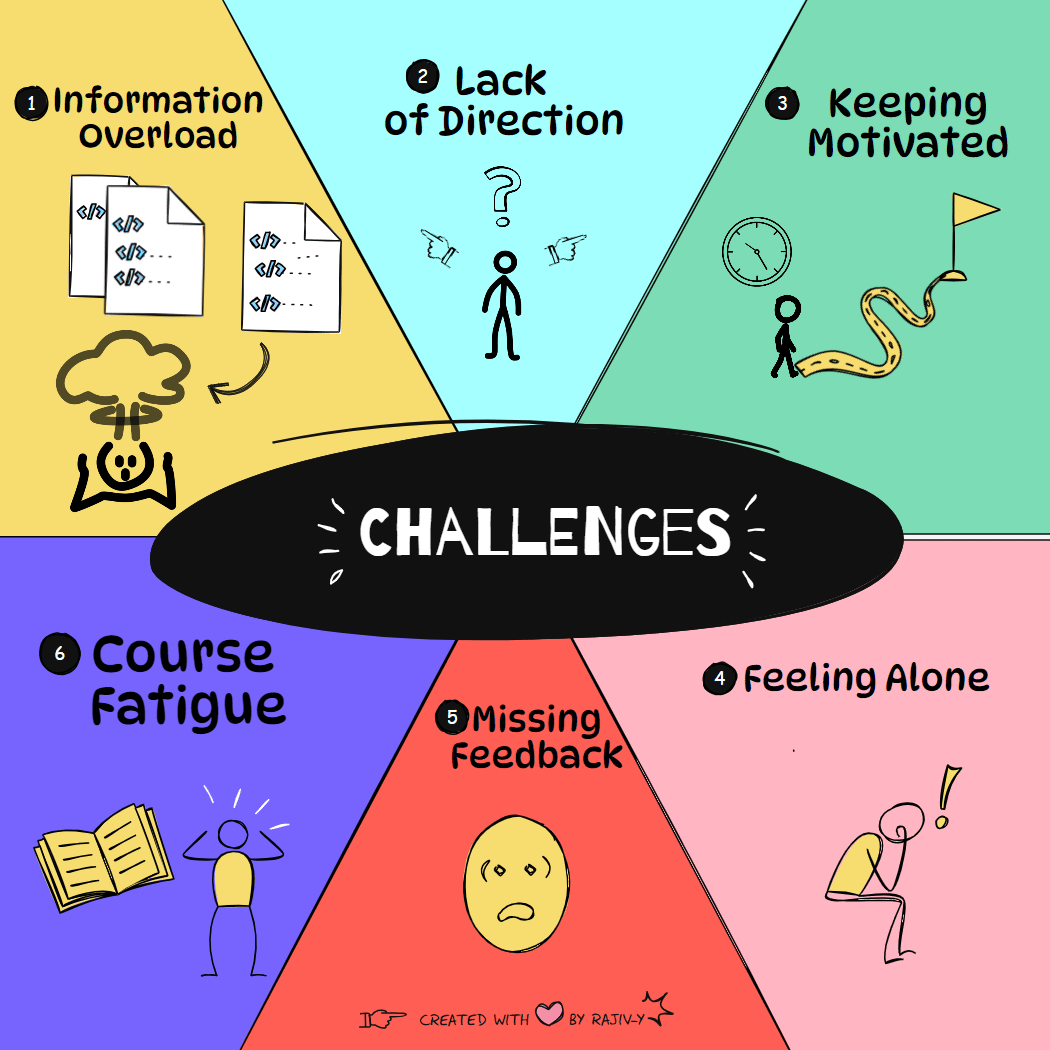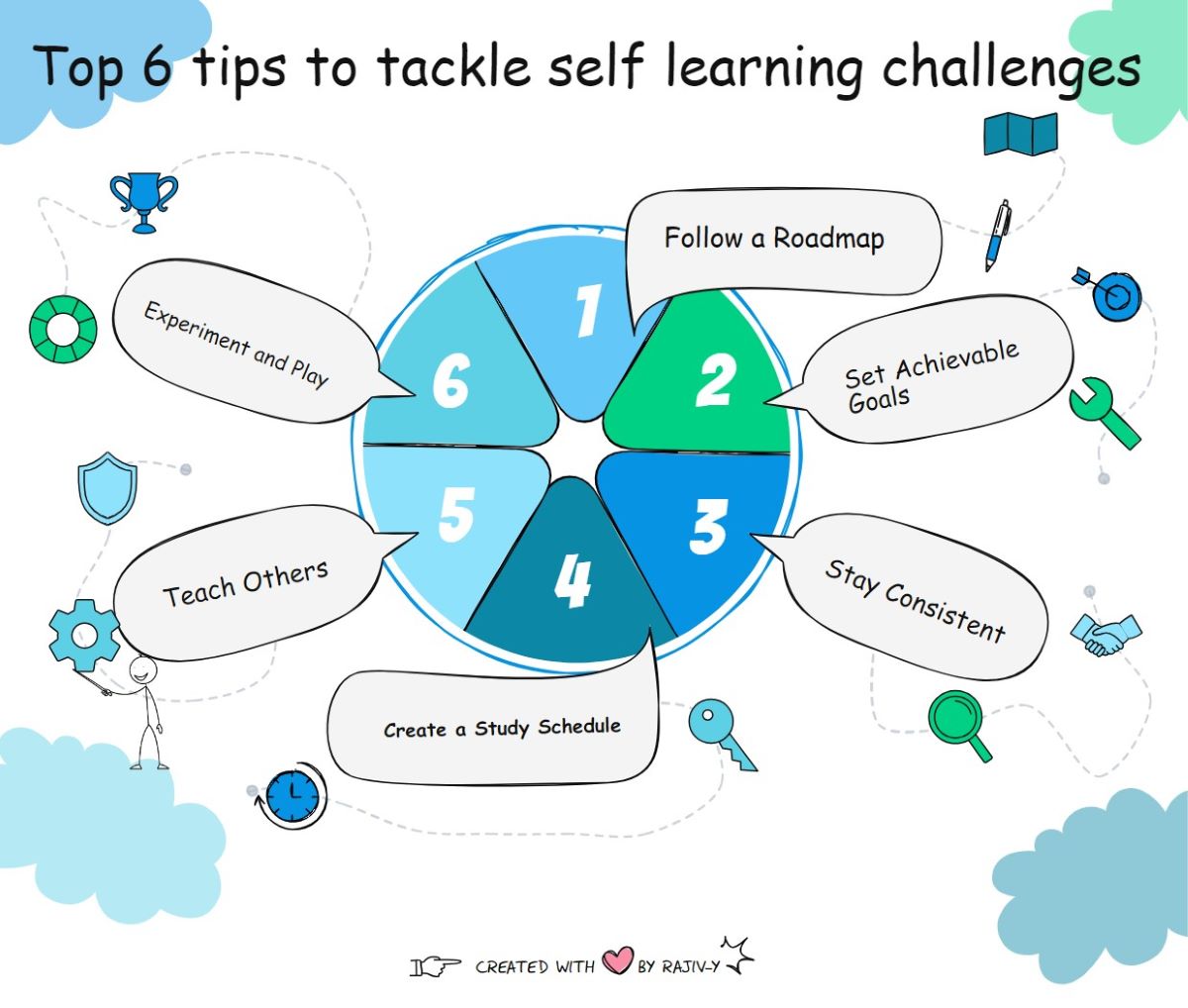Beat Procrastination and ace Self-Learning!
✨ Overcome Self-Learning Struggles with These Tips! ✨
Hey there! Struggling as a self-taught programmer? You’re not alone. Let's discuss the common challenges of being a self-taught coder and how to overcome them today.
By the end of this post, as a self-taught programmer, I will share my tips for navigating the self-learning maze, staying motivated, and connected. Ready to level up your learning game? Let’s dive in!

TL;DR - version


Challenges
First up, the challenges of self-learning:
- Information Overload: There is an overwhelming number of books, tutorials, and courses available, making it difficult to determine where to begin and whom to trust.
- Lack of Direction: Without a well-defined curriculum, it's easy to become lost and fall into "tutorial hell," jumping from one tutorial to another without truly mastering anything.
- Keeping Motivated: Staying motivated without deadlines and accountability can be challenging, as procrastination often becomes the biggest hurdle.
- Course Fatigue: Platforms such as Udemy offer extensive courses that may seem valuable, but many individuals fail to complete them, moving from one course to another without truly learning.
- Missing Feedback: Learning alone means missing out on valuable feedback and code reviews that could help you improve.
- Feeling Alone: Self-learning can sometimes feel lonely because you miss out on the collaborative environment that traditional education provides.

Tackle these challenges
Now, let’s talk about how to tackle these challenges:
- Follow a Roadmap: Make sure to use structured roadmaps to guide your learning.
- Set Achievable Goals: Split up your learning into smaller parts with clear goals and deadlines. This will help you stay on track and keep your motivation up.
- Join Learning Communities: You can find awesome programming communities on platforms like Stack Overflow. If you're taking any courses, make sure to join their forums and get in on the action.
- Get Feedback: Don't forget to share your code on places like Stack Overflow or GitHub and ask for feedback. Get involved in open-source projects to learn from experienced developers.
- Work on Real Projects: Don't forget to put your learning into practice by working on real projects. This will help you really understand what you've learned and give you something cool to show off. Share your projects on GitHub when you're ready!
- Stay Consistent: Just keep at it! Code a little every day to build up momentum.
- Use Multiple Resources: Don’t rely on a single source of information. Utilize books, online courses, tutorials, forums, and videos to gain different perspectives and explanations
- Create a Study Schedule: Plan your study schedule and stick to it to maintain discipline and dedicate time to learning.
- Take Breaks: Don't overwork yourself. Take regular breaks to rest and recharge, which can enhance productivity and creativity.
- Teach Others: Explaining concepts to others is a great way to strengthen your own understanding. Consider writing blog posts, creating tutorial videos, or engaging in online forums.
- Experiment and Play: Don’t hesitate to experiment by building small projects or modifying existing ones, as this hands-on approach deepens understanding.
- Learn Debugging: Get comfortable with debugging tools and techniques. Learning how to troubleshoot your code efficiently can save a lot of time and frustration.
- Stay Updated: Technology evolves rapidly. Stay updated on the latest trends, tools, and best practices by following industry blogs, podcasts, and news sources.
- Read Code from Others: Look at open-source projects or code snippets from other developers. Analyzing how others write and structure their code can provide new insights and techniques.

Using AI
We can leverage AI tools such as GitHub Co-pilot and Code Rabbit-AI, which greatly assist in coding and pull request reviews. They can be used as a peer programmer to help with coding.
Career Impact
I was able to advance from an application specialist to a developer role through self-teaching. Initially, employers were skeptical, but I overcame their doubts by creating small projects to solve common problems. For example, I built a basic LEM (low-equity-margin) calculator on MS Azure. This calculator took property prices and deposit amounts as input to calculate LEM fees from various banks. During interviews, I demonstrated this application on my iPad, showcasing my practical skills and problem-solving abilities. Tackling such challenges on my own enhanced my problem-solving skills, made me more resourceful, and helped me address any knowledge gaps through continuous learning and feedback.
The site your reading this post is also a side project I built as part of my self-learning journey.

Conclusion
Whenever you're feeling overwhelmed or stuck, keep these tips in mind to keep pushing ahead. Let's all support each other on this journey.
One last thought: keep sipping ☕, crunching 🍪, and coding 🛠️—your next breakthrough is just a chai away.
🎉Happy coding!!🎉
Every coffee ☕ (or chai 🍵) you buy fuels another idea, another post, and another smile. Thank you for supporting my work!